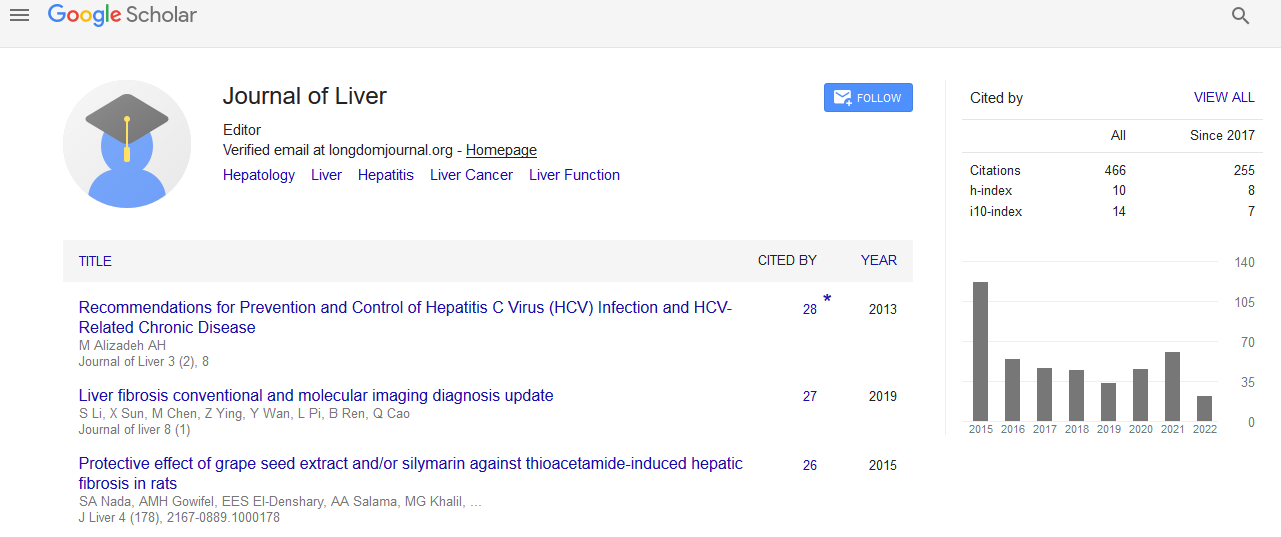PMC/PubMed Indexed Articles
Indexed In
- Open J Gate
- Genamics JournalSeek
- Academic Keys
- RefSeek
- Hamdard University
- EBSCO A-Z
- OCLC- WorldCat
- Publons
- Geneva Foundation for Medical Education and Research
- Google Scholar
Useful Links
Share This Page
Journal Flyer

Open Access Journals
- Agri and Aquaculture
- Biochemistry
- Bioinformatics & Systems Biology
- Business & Management
- Chemistry
- Clinical Sciences
- Engineering
- Food & Nutrition
- General Science
- Genetics & Molecular Biology
- Immunology & Microbiology
- Medical Sciences
- Neuroscience & Psychology
- Nursing & Health Care
- Pharmaceutical Sciences
Abstract
Genistein Produces Hepatoprotection through Modulating EGFR Expression and Phosphorylation in Experimental Fibrosis
Rodriguez Fragoso L, Alvarez Ayala E, García Vazquez F and Reyes Esparza J
Background and Objective: Liver disease chronicity leads to the appearance of fibrosis, cirrhosis, and eventually cancer. For this reason, it is important to research new fibrosis therapies. The use of genistein as a hepatoprotective agent has been studied, but its mechanism of action is unknown. The aim of this work was to evaluate the role of genistein as a fibrosis treatment and its possible mechanism of action through CCl4-induced inhibition of EGFR in rat specimens. Methods: Hepatic fibrosis was brought about by chronic administration of CCl4 to rats. Animals with fibrosis were treated with 1 mg/kg genistein. To evaluate the hepatoprotection of genistein on liver fibrosis, we made a histopathological analysis using both H&E and trichrome staining, as well as an immunofluorescence analysis for α- SMA and an immunohistochemical analysis for PCNA. In order to find out the effects of genistein on EGFR expression and phosphorylation, we performed immunostaining for EGFR and dot blot analysis for two specific tyrosine residues: pY992 and pY1068. We also evaluated liver functionality. Results: Genistein reduced liver fibrosis and improved liver architecture. α-SMA positive cells were lower in genistein-treated animals with fibrosis. Likewise we found a reduction in EGFR expression and phosphorylation of genistein-treated animals with fibrosis; PCNA positive cells were reduced in this group. We observed liver functionality improvement in those animals with fibrosis that were treated with genistein. Conclusion: Genistein produces hepatoprotection through modulating the expression and phosphorylation of EGFR in experimental fibrosis.

